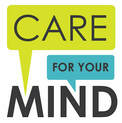 This post originally appeared in the Washington Examiner on January 31, 2019. . Outside groups prepare to fight Trump drug pricing proposal. Outside groups involved with fighting HIV, epilepsy, and serious mental illness are prepared to battle the Trump administration on a plan to change Medicare Part D, the portion of the program that covers prescription drugs. The administration has proposed making changes to what are known as the “six protected classes” of drugs, which allow certain patients with serious health conditions to receive any drug that their doctor determines is best to treat them.
2 Comments
PoliticoPro: Drug Industry, Patient Groups Urge CMS to Abandon Proposed Protected Classes Changes1/29/2019  This post originally appeared in Politico Pro on January 29, 2019. Industry and patient groups alike are pushing back on a CMS proposal to give Medicare Part D and Medicare Advantage plans power to limit coverage of “protected class” medicines in a bid to lower government spending. The deadline to submit comment on CMS’s proposal, Modernizing Part D and Medicare Advantage to Lower Drug Prices and Reduce Out-of-Pocket Expenses, was Jan. 25 and hundreds rolled in. While the proposed rule lays out a number of strategies, the top item would give plans broader negotiating tools — including step therapy and prior authorization — for anticonvulsants, antidepressants, antineoplastics, antipsychotics, antiretrovirals and immunosuppressants.  A group of more than 140 leading patient advocacy organizations sent a letter today to the Centers for Medicare and Medicaid Services (CMS) in opposition to a recent proposal that would establish broad exceptions to Medicare Part D’s protected classes policy. As the letter explains, these changes to the protected classes policy threaten the well-being of Medicare beneficiaries with chronic conditions, cognitive impairments, and limitations in their activities of daily living. Meanwhile, the groups point out that potential savings CMS could realize from allowing plans to add new, more expansive restrictions on access to drugs in the protected classes would be reversed by increases in costs in other areas of Medicare and lead to undesirable patient outcomes. Specifically, CMS’s analysis overlooks the importance of the costs that could be incurred from disrupting treatment for stabilized patients and restricting access for those patients starting treatment. Partnership Comment Letter Outlines Concerns with CMS Proposal to Weaken 'Six Protected Classes'1/24/2019  Today, Partnership for Part D Access (Partnership) submitted a comment letter to the Centers for Medicare and Medicaid (CMS) expressing concern that the agency’s recent Medicare proposal to weaken Medicare’s six protected classes will ultimately harm patients with the most complex conditions. In the letter, the Partnership highlights several concerns with CMS’ proposed rule, arguing that the agency misunderstands both the congressional intent of the policy and the reality of how it is appropriately working for Medicare patients today. The letter provides ample evidence highlighting the effectiveness of the current protected classes policy, which was created to ensure patients with the most challenging medical conditions have access to the full range of treatment options under Medicare Part D. “The flaws in the proposed approach and the potential for significant harm to patients lead us to respectfully request the agency withdraw each of the three proposed exceptions,” the letter states. The letter in its entirety can be accessed below.
 This post initially appeared in The Buffalo News on January 22, 2019. The Trump administration is poised to undermine seniors’ access to lifesaving medications.It recently proposed a rule that would weaken patient protections within Medicare’s “Part D” prescription drug benefit. By law, Part D drug plans are required to cover all drugs in six “protected classes” of medicines. This requirement ensures that seniors and people with disabilities have widespread access to drugs used to treat cancer, depression, HIV and more. Chuck Ingoglia, Executive Director of the Partnership for Part D Access, delivered the following remarks at the Medicare Payment Advisory Commission's (MedPAC's) January 17, 2019 public meeting.  In light of the Commission’s work on Medicare Part D, the Partnership thought it would be helpful to share an update on a policy you’ve touched on in the past: Medicare’s six protected classes. This issue is especially relevant today, as the Commission’s 2016 recommendation on the protected classes has been cited in the context of a proposed rule that was recently released by CMS.  This post initially appeared on the Care for Your Mind blog on January 15, 2019. One of Medicare’s key patient protections – the six protected classes – is under threat by a new proposal from the Trump Administration. Feedback from the public will be critical in deciding whether or not they move forward — that’s why it’s essential that you let your voice be heard. Medicare Part D plans don't pay for hospital or physician services. And as research demonstrates, this makes them less invested in keeping people healthy enough to avoid some hospital visits.  The most popular type of Medicare drug coverage is through a stand-alone prescription drug plan (PDP). A stand-alone plan never has to pay for hospital or physician visits — those are covered by traditional Medicare. Another way to get drug benefits from Medicare is through Medicare Advantage (MA) plans, which are private insurance plans subsidized by the government to manage prescription drug benefits alongside other medical benefits. Because of this difference, stand-alone drug plans have less incentive than MA plans to keep people healthy enough to avoid some hospital visits. This phenomenon is brought to light in multiple economic analyses, which repeatedly highlight how “profit-maximizing” PDPs are incentivized to limit benefits or increase out-of-pocket costs because they are not responsible for costs incurred by other parts of the Medicare, such as hospitalizations.
As detailed in a New York Times article by health economist Austin Frakt, "Part of the purpose of Medicare’s drug benefit is to encourage enrollees to take prescription drugs that can keep them out of the hospital." In July 2003, promoting the legislation that created Medicare’s drug benefit, President George W. Bush articulated this point. “Drug coverage under Medicare will allow seniors to replace more expensive surgeries and hospitalizations with less expensive prescription medicine,” he said. This effect is illustrated by a recent study led by a Harvard economist that shows that seniors’ increased use of medications to manage health conditions contributed to much slower growth in Medicare spending than had been expected. In practice, the design of Medicare’s drug benefit includes stand-alone plans that aren’t liable for hospital costs and don’t work as hard as commercial plans to avoid them. That's why Congress explicitly created a handful of patient protections — including the Six Protected Classes policy — which are unique to Medicare, and encourage plans to provide benefits that help keep people healthy. By ensuring that Medicare beneficiaries with the most complicated conditions have access to the right combination of prescription drugs, the Six Protected Classes policy helps hundreds of thousands of patients effectively manage their illness — keeping them out of the hospital and ultimately producing considerable savings in Medicare Parts A and B. |
AuthorWrite something about yourself. No need to be fancy, just an overview. Archives
September 2023
Categories |
||||||
Learn more |
What's New? |
|
